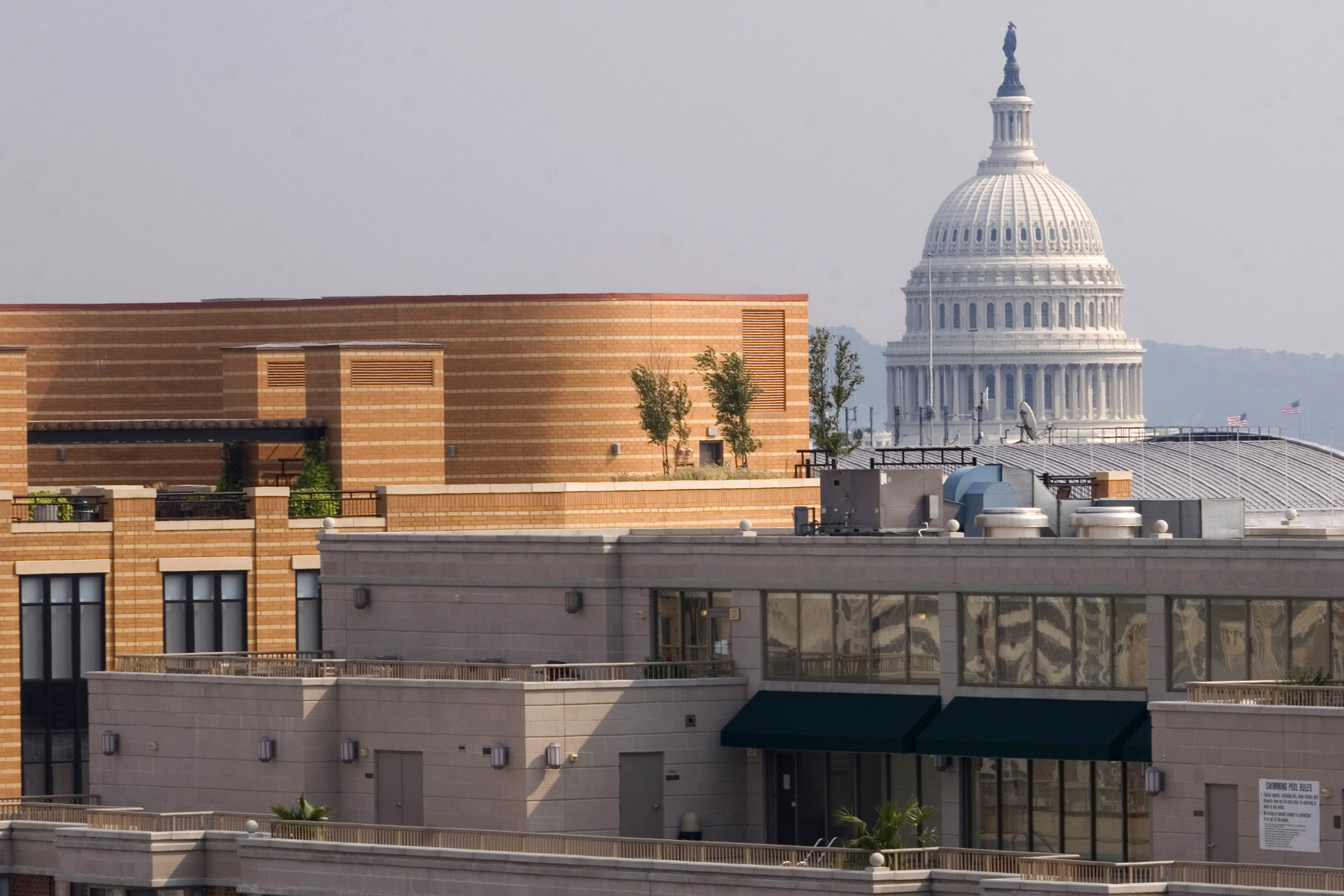Liberals have failed miserably at stopping gentrification
Without action, soon there will be no place for poor people in DC


A free daily email with the biggest news stories of the day – and the best features from TheWeek.com
You are now subscribed
Your newsletter sign-up was successful
Liberal Democrats are in charge of most major cities in America, and they're not doing well at one key aspect of the job: providing housing for their poorest residents. Two recent developments illustrate this fact.
First, a report from the DC Fiscal Policy Center finds that affordable housing (which is to say, apartments at $800 per month or cheaper) has basically vanished from the private rental market in DC — public housing is about all that's left, and there's not remotely enough of it to satisfy demand. Poor families are increasingly forced into expensive housing, paying half or two-thirds of their income in rent, with predictably disastrous consequences for health and security.
In other words, DC is gentrifying. Why? Conservatives sometimes argue that it's all those left-wing regulations to blame for preventing developers from building new capacity to meet the increased demand. This brings me to the second story.
The Week
Escape your echo chamber. Get the facts behind the news, plus analysis from multiple perspectives.

Sign up for The Week's Free Newsletters
From our morning news briefing to a weekly Good News Newsletter, get the best of The Week delivered directly to your inbox.
From our morning news briefing to a weekly Good News Newsletter, get the best of The Week delivered directly to your inbox.
In fact, DC has been building new apartments at a breakneck pace. About 24,000 new apartments have come on the market in the past two years. The problem, as you might have guessed, is that they are almost all luxury apartments. There are so many that, according to research from the firm Costar Group, rents of high-end apartments actually fell sharply in 2014, narrowing the cost gap between mid-range and luxury apartments.
So the supply argument does hold, in a sense. It's just that all that vast effort and expense has been put forth to make luxury housing cheaper for rich people.
Often lefty analysis stops at this point to focus ire on the dread combination of white gentrifiers, with their problematic aesthetics, and real estate developers who are wrecking the city for poor minorities. But it would be a mistake to end there.
Consider a thought experiment: suppose all those cushy new apartment buildings built over the past few years had been blocked? Things would have been even worse for poor people. New residents would have shifted into lower-quality housing, driving up the cost of previously affordable units even more than they already have.
A free daily email with the biggest news stories of the day – and the best features from TheWeek.com
That's not to say we should bow down before the lobbyist class, but that there is more at work here than bad people doing selfish things. As Daniel Kay Hertz notes, the beginning of wisdom when it comes to gentrification is to recognize that the really powerful actors are neither the new residents nor even the real estate developers.
Instead, the mark of genuine power is seen in the very desirable, expensive areas where new construction is not happening. Developers would make a king's ransom building apartments in Georgetown, but they can't because their strength is nothing compared to the hysterical NIMBYism of the upper class. Existing rich residents slamming the door shut on their own neighborhoods is the major engine of gentrification, because that's what pushes new residents into cheaper neighborhoods that don't have the political power (read: money) to resist expropriation and redevelopment.
Any sensible fight against gentrification would begin outside the affected neighborhoods. But instead, the major political development in DC housing policy of late has been a proposal to restrict density increases, condo conversions, and pop-ups. It will, without question, make the affordability problem worse.
Ultimately, this is the result of the typical suite of liberal housing policies. Without coordinated city-wide policy to force the creation of the tens of thousands of affordable apartments that are needed and to open up existing rich areas, neighborhood after neighborhood will fall to the developer's axe, which will then be frozen in amber, LEGO Movie-style, by the conservatism of the new rich residents. As I've argued before, the typical liberal solutions of inclusionary zoning and rent control don't create nearly enough units.
How exactly to get there is an open question — personally I favor massively expanded public housing, upzoning, especially in already-wealthy areas, and mandating developers to build "lower quality" units (meaning smaller apartments without the concierge service or rooftop pool). That might involve changing the political structure of city governments in favor of city-wide decisions and away from local obstruction.
But one thing is certainly true: Without big-time action of some kind, in a decade or two there simply won't be a place in DC for any but a handful of poor people.
Ryan Cooper is a national correspondent at TheWeek.com. His work has appeared in the Washington Monthly, The New Republic, and the Washington Post.
